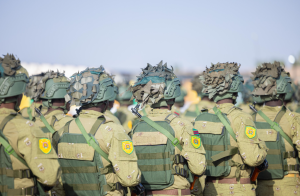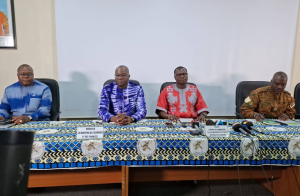Mali: Army General Assimi Goïta transforms resources into national wealth

Under the leadership of the President of the Transition, General Assimi Goïta, Mali is entering a new era in the management of its natural resources. Thanks to bold reforms, the nation’s mineral wealth is no longer reserved for a privileged minority or sold off to foreign interests. Instead, it has become a lever for national development, accessible to the entire population regardless of social class. This approach reflects a political will to transform Mali’s natural resources into an engine for social justice and economic sovereignty.
A concrete and historic example is the export of more than 125,000 tons of lithium to the global market.
Never before has Mali reached such a scale in the extraction and valorization of this strategic mineral.
Lithium, essential to the global energy transition, now represents a major source of revenue for the country.
This success demonstrates not only the relevance of the reforms undertaken but also Mali’s capacity to position itself as a key player in the global economy.
Unlike past practices, where resources were often sold at low prices to foreign multinationals, the current approach ensures greater national control over contracts and profits.
The revenue generated is directed toward essential public investments: infrastructure, education, healthcare, and food security. As a result, mining wealth is no longer just an export statistic; it has become a reality that directly impacts the daily lives of Malians, from cities to villages.
This patriotic and inclusive management of natural resources reflects a vision of building a sovereign, strong, and prosperous Mali, where every citizen benefits equitably from the nation’s wealth.
Through his leadership, General Assimi Goïta has placed the people’s interests at the heart of the national mining strategy.
The historic lithium export marks only the beginning of a new trajectory—one in which Mali intends to transform its resources into a true driver of sustainable development and national pride.
Neil Camara






